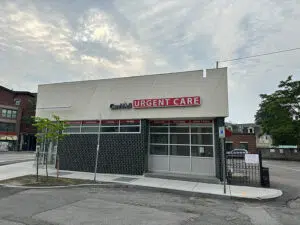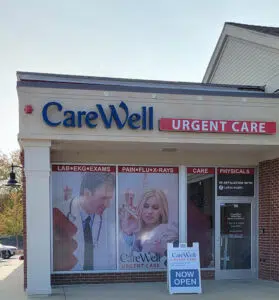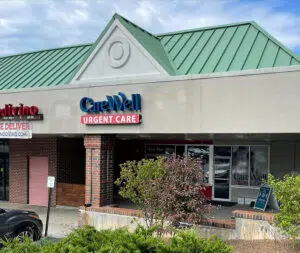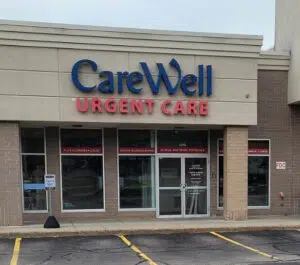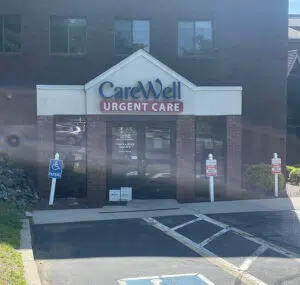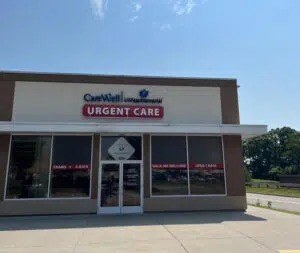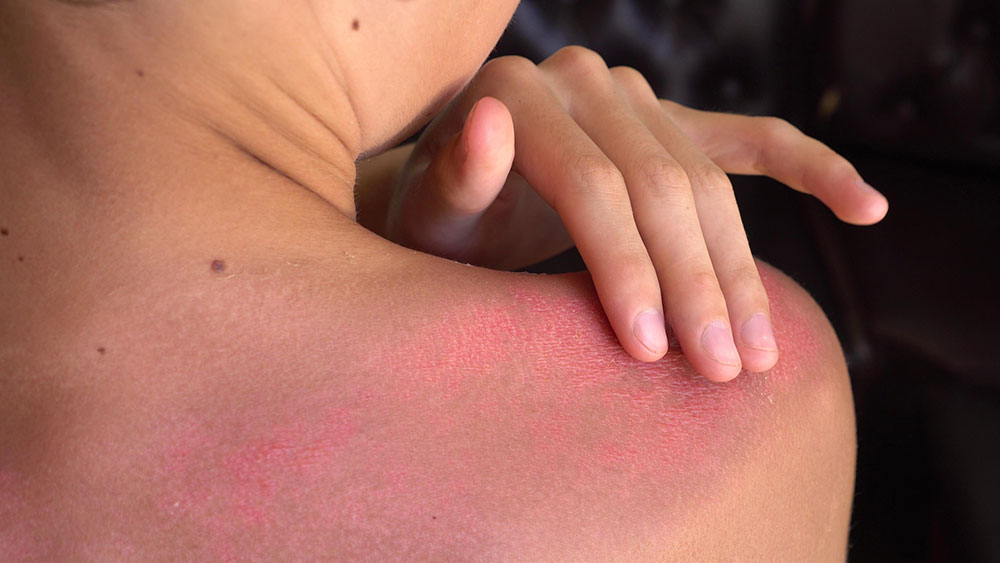
Whether you’re soaking up summer rays at the beach or casting out for the catch of the day, it’s easy to lose track of time and forget about the potential consequences of sun exposure.
Overexposure to the sun can irritate your skin, leading to painful and potentially dangerous consequences.
Unprotected skin can burn in as little as 10-15 minutes. Keep reading to explore everything you need to know about sunburns and when to seek urgent care for sunburn treatment.
How Bad Is My Sunburn?
Sunburns can range from mild discomfort to severe pain, the latter, of course, requiring prompt medical attention to ensure proper healing.
Here are three levels of sunburn and common symptoms:
- Mild
The skin may be red, tender, swollen, and hot to the touch. The skin may peel as it heals. This type of sunburn usually heals on its own within a few days to a week. - Moderate
The skin may be extremely red, wet-looking, swollen, or blistered. The skin may also appear white or splotchy. Symptoms of heat illness (e.g., dizziness, confusion, fatigue, fever, headache, nausea, muscle cramps, or rapid breathing) may also be present. This is a serious sunburn that can take weeks to heal, may require medical treatment, and could result in permanent skin discoloration or scarring. - Severe
The skin may feel numb or appear leathery, white, or dull. Painful blistering is also common. Symptoms of heat illness, shock, or heat stroke are also common. This requires severe sunburn treatment in an urgent care or emergency room setting as it can cause numbness, loss of sensation and loss of function and may leave scars.
Seek urgent care for sunburn treatment if you have moderate to severe sunburn symptoms, like those noted above, or if you develop one or more of the following:
- Moderate to severe blisters (especially on the hands, face, or genitals)
- Signs of infection
- Worsening pain
You can often treat mild sunburns safely with at-home remedies and over-the-counter pain relief medications.
Can I Treat My Sunburn at Home?
Here are a few things you can do to help relieve symptoms until your skin heals:
- Keep the skin cool.
Apply ice packs and take cold showers or baths to soothe the skin. - Stay moisturized.
Apply a gentle moisturizer lotion or aloe vera gel to soothe and rehydrate the skin. Aloe vera promotes healing, reduces inflammation, and offers cooling relief for sunburns. - Stay hydrated.
Your body is sending extra fluids to the sunburned areas to aid healing. Drink plenty of water to help the healing process. - Take medicine.
Over-the-counter pain relief medications can help keep you comfortable as your skin heals. - Avoid further sun exposure.
Stay indoors during peak sun hours (10 a.m. – 4 p.m.). Cover the sunburned areas with protective clothing, if you need to be outdoors, and wear SPF 30 or higher.
When Should I Go to Urgent Care for Severe Sunburn Treatment?
If you’re experiencing one or more of the following, seek urgent care for sunburn treatment right away:
- Severe pain that over-the-counter medications cannot alleviate.
- Large blisters or open sores.
- Signs of infection like increasing pain, swelling, fever, or redness that is spreading beyond the sunburned area.
- Signs of heat illness including dizziness, nausea, vomiting, fainting, or confusion.
- Pre-existing health conditions along with sunburn, like diabetes or immune suppression, could slow the healing process.
What Can Urgent Care Do for Sunburn?
If you or a loved one has a severe sunburn, urgent care centers can provide several services to help manage its symptoms, helping you feel better fast. Here are a few ways CareWell can help:
- Medical professionals can assess your sunburn, diagnose its severity, and recommend treatments.
- Providers can prescribe topical creams to alleviate pain and discomfort.
- If needed, urgent care centers may provide IV fluid hydration to help replenish lost fluids and aid healing.
- Medical professionals can properly clean and dress blisters and open wounds to prevent infection and encourage healing.
- Providers can diagnose signs of infection and prescribe appropriate antibiotics and other medications as needed.
When summer heats up and sunny days become more common, taking proactive steps to prevent sunburn can help you avoid the need for urgent care sunburn treatment.
How Can I Protect Myself From Severe Sunburns?
Be sun smart and avoid urgent care for sunburn treatment with tips from our CareWell providers:
- Wear sunscreen every day.
Wear a broad-spectrum sunscreen with SPF 30 or higher on all exposed skin. Reapply at least every two hours—more often if you are swimming or sweating.
- Limit sun exposure from 10 a.m. to 4 p.m.
The sun’s UV rays are strongest during midday. To protect your skin, use umbrellas, hats, or seek shade under trees or awnings, especially during this time. - Cover your skin.
If you must be outdoors during the day, wear lightweight, tightly woven clothing that covers your arms and legs. Look for clothing options offering additional UV protection for even more coverage. Wear a wide-brimmed hat to protect your face, ears, and neck. - Wear sunglasses with UV protection.
Yes, your eyeballs can get sunburned. Protect your eyelids, corneas, lenses, and retinas from the harmful effects of the sun’s UV rays with well-fitting sunglasses offering UV protection.
Now that you know when to go to urgent care for sunburns, visit CareWell Urgent Care for prompt, exceptional care.
We can help take the sting out of your sunburn and help you feel better fast.


